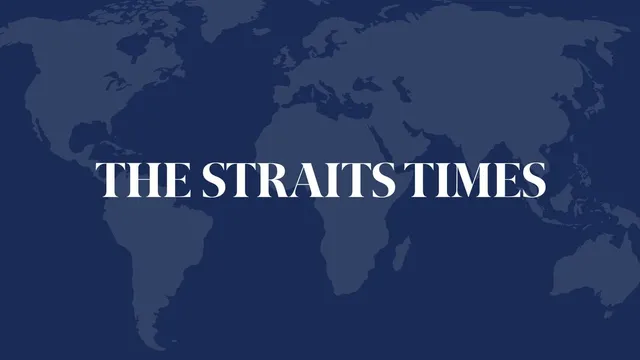
Rohingya insurgent leader Ataullah Jununi arrested in Bangladesh
2025-03-20 20:27- Ataullah Abu Ammar Jununi, a Pakistani-born Rohingya, was arrested in Bangladesh for charges including illegal entry and terrorist activities.
- His group, the Arakan Rohingya Salvation Army, has conducted multiple attacks against Myanmar security forces since its formation in 2016.
- The volatile situation among the Rohingya refugees in Bangladesh continues to threaten their safety and wellbeing.
Express your sentiment!
Insights
Bangladesh has become a temporary refuge for over one million Rohingya refugees fleeing ethnic violence and persecution from Myanmar. On March 18, 2025, security officials arrested Ataullah Abu Ammar Jununi, the leader of the Arakan Rohingya Salvation Army (ARSA), in Narayanganj, near the capital Dhaka. Jununi was taken into custody under charges including illegal entry, murder, sabotage, and terrorist activities. His group has been known for armed assaults against Myanmar's security forces amidst ongoing humanitarian crises. The actions of ARSA and its members have intensified the struggle for survival among the Rohingya population within the refugee camps. Jununi's arrest marks a significant move by Bangladeshi authorities to crack down on insurgent activities that have created internal strife among the Rohingya refugees. The ARSA, evolved from Rohingya exiles aiming to reclaim their rights, has been implicated not just in insurgency but also in criminal enterprises within camps, such as smuggling and kidnappings. Analysts have noted that ARSA was formed in 2016 primarily by refugees who had fled the brutal conditions in Myanmar and have been fighting to gain recognition for the Rohingya people. In past months, the activities of ARSA have also led to heightened violence within refugee settlements, resulting in several fatal clashes. Critics have drawn attention to the serious issues of infighting and retention of authority by various factions of armed groups in these camps. Tragically, this situation not only complicates humanitarian efforts but also increases the everyday peril for ordinary Rohingya families who are solely seeking safety away from the violence of their homeland. Infighting among various factions has resulted in numerous deaths, particularly following the murder of prominent Rohingya leader Mohib Ullah in 2021, an incident that set back peace efforts significantly. As Bangladesh’s government continues to face pressures regarding the Rohingya population, the arrest of Jununi is seen as both a necessity for maintaining order in the camps and a politically risky move, as it may provoke violent retaliation from his followers. The complexity of this situation highlights the intertwined challenges of human rights, security, and the urgent need for sustainable solutions for a population that has for too long lived in limbo. The global community watches closely as they balance the humanitarian needs of the Rohingya refugees with the security issues posed by insurgent groups within the camps.
Contexts
The Rohingya refugee crisis in Bangladesh has become one of the most pressing humanitarian issues in recent history, stemming from decades of persecution in Myanmar. Since August 2017, over 700,000 Rohingya Muslims have fled to Bangladesh to escape violent military crackdowns in Myanmar's Rakhine State. The influx has led to one of the fastest-growing refugee populations in the world, exacerbating existing vulnerabilities and straining resources in Bangladesh, a country that itself grapples with poverty and limited infrastructure. The refugee camps established, particularly in Cox's Bazar, have become some of the largest in the world, with nearly a million Rohingya living in overcrowded and unsanitary conditions, making the need for international assistance and intervention critical. The situation is further complicated by the challenges related to access to basic services such as healthcare, education, and safe drinking water. The camps are often plagued by inadequate facilities, leading to health crises like outbreaks of cholera, malnutrition, and other communicable diseases. In addition, the mental health of refugees has severely deteriorated due to trauma experienced during their escape and their ongoing precarious living conditions. Humanitarian organizations continue to advocate for increased funding and support to meet the urgent needs of the refugee population, yet many face constraints in delivering effective aid due to bureaucratic hurdles and the volatile security situation. Moreover, the Rohingya crisis poses complex diplomatic challenges, not just for Bangladesh but also for the broader South Asian region and the international community. While Bangladesh has shown remarkable hospitality, the sustainability of hosting such a large refugee population is in question. The potential for resource conflicts, economic strain, and social tensions exists as locals and Rohingya compete for already scarce resources. The need for durable solutions, including repatriation to Myanmar under safe and dignified conditions, is increasingly urgent. International pressure on Myanmar remains essential to ensure accountability for human rights violations and to work towards a long-term resolution that addresses the root causes of the crisis. In conclusion, the Rohingya refugee crisis represents a significant challenge that requires a collaborative, multi-faceted approach involving humanitarian aid, diplomatic engagement, and long-term development strategies. The international community must prioritize addressing the humanitarian needs of the Rohingya while simultaneously working towards solutions that ensure their rights and safety. Failure to adequately intervene risks perpetuating cycles of violence, poverty, and instability in the region, threatening both refugees and host communities alike.